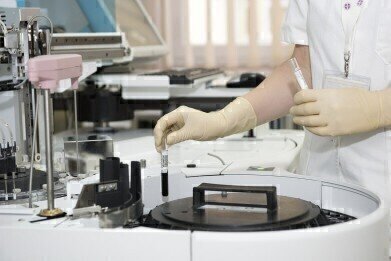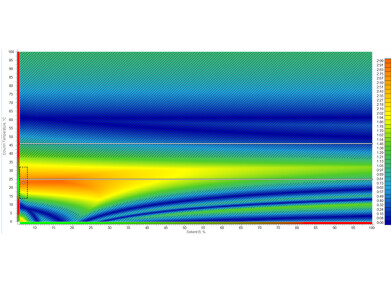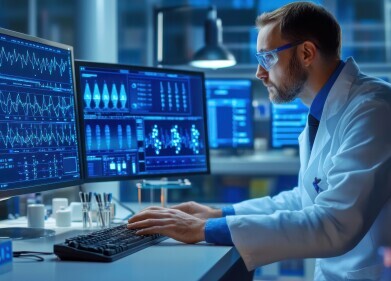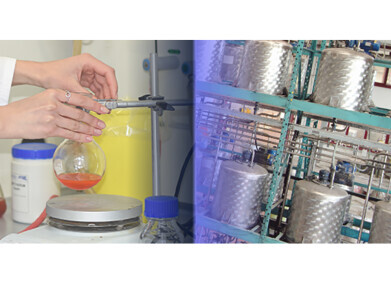IT solutions
Can Automation Help With Drug Discovery?
Mar 10 2021
The rapid advancement of technology is infiltrating all areas of medical research, including pharmaceuticals. In particular, automation of laborious laboratory processes can yield a plethora of benefits for drug discovery and development, including efficiency, accuracy and reproducibility. Here’s a brief run through some of the more important ways in which automation can aid the pharmaceuticals industry:
Time savings
The status quo of laboratory research sees highly skilled PhD students and postdocs spending far too much time performing menial tasks to conduct experiments, create hypotheses and reach conclusions. However, the heavy lifting of lab work can easily be delegated to robots, leaving humans more time to tackle the really challenging aspects of drug discovery such as idea formulation, development and discussion. Instead of wasting countless hours on repetitive lab work, they will have the time and freedom to devote to intellectual pursuits.
Protocol adherence
In a lab experiment which asks for a sample to be mixed, that instruction could be interpreted in any number of ways by the individual scientists in question, such as shaking, stirring or vortexing, to name just three. However, using a robot to conduct the experiment will create and adhere to a rigid protocol, such as stirring the sample at 100 revolutions per minute for exactly two minutes and at precisely two degrees Celsius. This kind of specificity is crucial in a lab setting where the conditions of an experiment must be exactly replicated in order to produce reliable results.
Data capture
Traditionally, scientists would record the data they had observed in handwritten notes. While drug discovery has changed over the years to involve the use of computers and virtual data more often, the precise way in which one researcher captures data is almost guaranteed to differ from that of his colleagues, even within the same facility. By contrast, the automation of data capture ensures that precise details are recorded every single time, including such important metrics as temperatures, humidity, timings and more. This makes it much easier to reproduce the experiment in its entirety in the future.
Data stewardship
At present, many labs store and share data via USB sticks or other hardware. The naming and sharing conventions can differ significantly from institution to institution – and even from scientist to scientist within the same institution. By using automation to track and store all data online in one, centralised location that is accessible to everyone wherever they are in the world, researchers can greatly facilitate collaboration on projects, thus leading to better outcomes and expedited drug discovery and development processes.
Digital Edition
Lab Asia Dec 2025
December 2025
Chromatography Articles- Cutting-edge sample preparation tools help laboratories to stay ahead of the curveMass Spectrometry & Spectroscopy Articles- Unlocking the complexity of metabolomics: Pushi...
View all digital editions
Events
Jan 21 2026 Tokyo, Japan
Jan 28 2026 Tokyo, Japan
Jan 29 2026 New Delhi, India
Feb 07 2026 Boston, MA, USA
Asia Pharma Expo/Asia Lab Expo
Feb 12 2026 Dhaka, Bangladesh



















